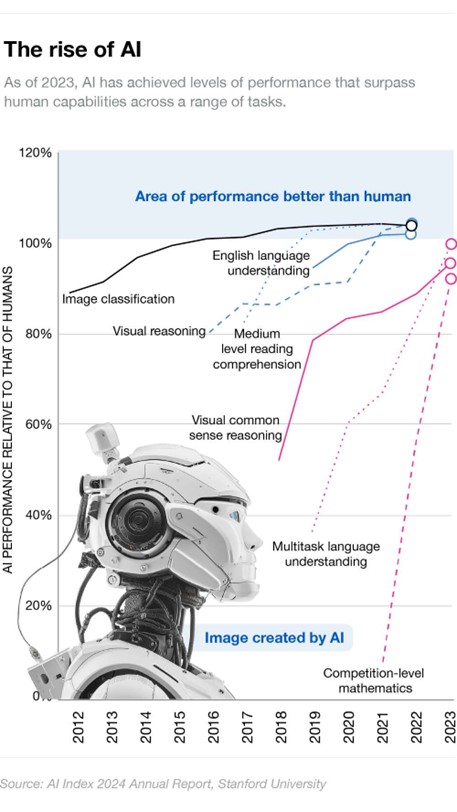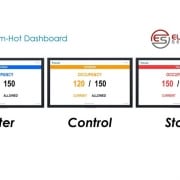ROBOTS ARE ALREADY TAKING JOBS
A major fast-food chain has replaced drive-through workers with artificial intelligence software and a video of a customer’s encounter with the new tech has gone viral. In the eerie TikTok, a woman films herself approaching the menu of a Wendy’s restaurant in the US and ordering a dessert from an AI, which successfully completes the task from start to finish in less than 30 seconds.
The company is one of several major operators in America, alongside McDonald’s, Chipotle, Domino’s and Taco Bell, to sign contracts with technology providers. Economists forecast millions of fast-food jobs will be lost in the coming five years as smart kiosks replace humans.
And the technology is predicted to be operating in Australia within the year, displacing countless people from jobs often relied on to make ends meet.
The beginning of mammoth change
Niusha Shafiabady, an associate professor in Charle Darwin University’s Faculty of Science and Technology, and an expert in machine learning, intelligent modelling and systems design, said the chilling video is a sign of what’s to come.
“This is just the beginning of a major disruption,” Dr Shafiabady said, adding that society is approaching the point where mass-replacement “really accelerates”.
“It’s reasonable to expect this kind of trend to spread into other sectors or professions, including engineering, healthcare, even in my profession of coding.
“The World Economic Forum forecasts administration and secretarial-type jobs to be displaced relatively quickly, while the World Bank says people in the lowest 40 per cent of income distribution are the ones likely to lose their jobs to technology quite quickly.”
Jobs that are relatively easy to replace with AI, like fast-food workers, will be “among the first to go”, she said.
Hundreds of millions of jobs
Analysis released last year by Goldman Sachs predicted AI will replace the equivalent of 300 million full-time jobs globally in coming years.
The financial giant expects 46 per cent of tasks in administrative roles and 44 per cent of legal profession duties could be automated by AI.
“Analysing databases detailing the task content of over 900 occupations, our economists estimate that roughly two-thirds of occupations [in the US] are exposed to some degree of automation by AI,” the report read.
“They further estimate that, of those occupations that are exposed, roughly a quarter to as much as half of their workload could be replaced.”

Expect this tech in Australia
Those watching from Australia who think the rollout of similar technology in drive-throughs here should expect to see it sooner rather than later.
David Tuffley, senior lecturer in the School of Information and Communication Technology at Griffith University, believes it could land within the year.
“We’ll see this technology in Australia, without doubt,” Dr Tuffley said.
“I don’t think it’s going to be all that long. Probably in the coming year, we’ll start to see it being piloted somewhere, trialled for a couple of months, and then probably rolled out across the country within two to three years.
“There’s also big potential for personalisation down the track. I think we might see AI getting to know individuals. There would be ways of sort of recognising people. There would be cameras on the car and face recognition, and it could say, ‘Hi Jim, do you want your usual?’
‘Do we want this?’
In Australia, the rapid uptake of AI and machine learning in the workplace prompted Minister for Employment and Workplace Relations Tony Burke to last month order a parliamentary inquiry.
The Inquiry into the Digital Transformation of Workplaces is being chaired by Labor MP Lisa Chesters, who said the committee will examine “the intersection between advanced digital technology and the labour market”.
“Australian workplaces are changing the way they operate,” Ms Chesters said.
“The committee wants to understand what these changes mean for employees and employers, our workplaces and the way we regulate and govern our employment practices.”
While this type of technology will inevitably replace many jobs, Professor Cameron believes it will increase opportunities too.
“There will be more jobs in tech,” she said.
“You’ve got to be educated, get those qualifications and skill sets. I think policy-wise, the government really needs to push micro-credentials courses, small courses, vet courses, higher ed courses, to encourage people – especially from low socio-economic backgrounds – to gain some skills that are going to grow and are going to have growth within them.











